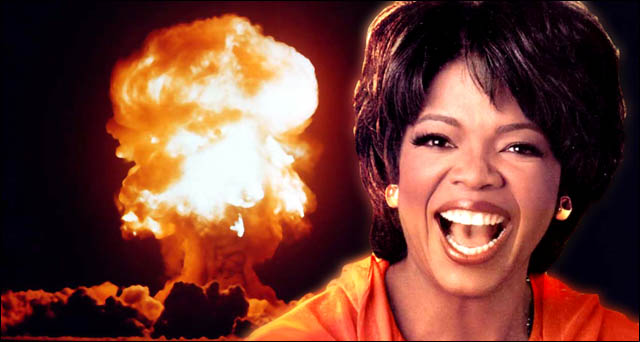

The Road
Premise
Evaluation The last nuclear war book I wrote about in 2006 was A Canticle for Leibowitz. In the same article I wrote about the first book in the contemporary novels class I briefly audited, Malone Dies. That class was also where I first heard of Cormac McCarthy; I bailed on the class right before it got to his book, so The Road is the first thing of his I've read. I bailed on the class because it seemed to be an exercise in reading deliberately opaque piles of words and then poking through them looking for Christ imagery. Well, The Road is about an opaque gray world, told in a rather opaque manner — just as gray snow blends into gray ash blends into gray sand blends into gray water, narration blends into dialogue (McCarthy doesn't use quotation marks and rarely indicates who's speaking) and sentences alternate between fragments and run-ons. And when I when I browsed some reviews to see why everyone is gaga over this book, what did I find? "Hey, check out all the Christ imagery!" Anyway, as a narrative this is not as bad as Malone Dies, though when you've read a bunch of stories about the postapocalyptic struggle, often involving people trudging down the remains of a US highway, it's hard to find it all that arresting or novel. It may be superlatively bleak to those expecting another Alas, Babylon or Leibowitz with their basically liveable futures, but is it really bleaker than On the Beach or Level 7 or even The Day After? On the surface, it seems like the answer is no. The book offers a sappy concluding message — even in the face of near-total annihilation, God lives on in the souls of little children! — that appears to be a key to the book's popularity among the Oprahs of the world. And yet it's very easy to read as a slap at them. "Goodness will find the little boy," the father says with his dying breath. "It always has. It will again." And on cue, the boy is found by a kindhearted family who adopts him! The end! Hooray! Enjoy your deus ex machina, Book Club! And, uh, try not to think about the hundreds of millions of little boys whom Goodness did not find, or about the fact that these people still have nothing to eat and are trapped in a global wasteland surrounded by cannibals. The hope offered by the book is so obviously false that I can't help but wonder what McCarthy was thinking. Another example of this sort of ambiguity is the much-quoted line, "If he is not the word of God God never spoke." It sounds like a powerful statement of faith — but even a heathen like me can wholeheartedly agree with it. After all, both the antecedent and the consequent are true. So I don't know. Is The Road, with its central Christopher figure traveling down a broken highway "carrying the fire," a subtle reminder that Christianity began as a religion of slaves and women, offering them the succor of deluded hope in a world that was a hell to them? Or is it just wankery of the highest order? Since everyone else seems to be taking it at face value I'm assuming it's the latter. Maybe McCarthy clarified the issue in his TV interview, but I don't watch Oprah.
Commentary
Return to the Calendar page! |
